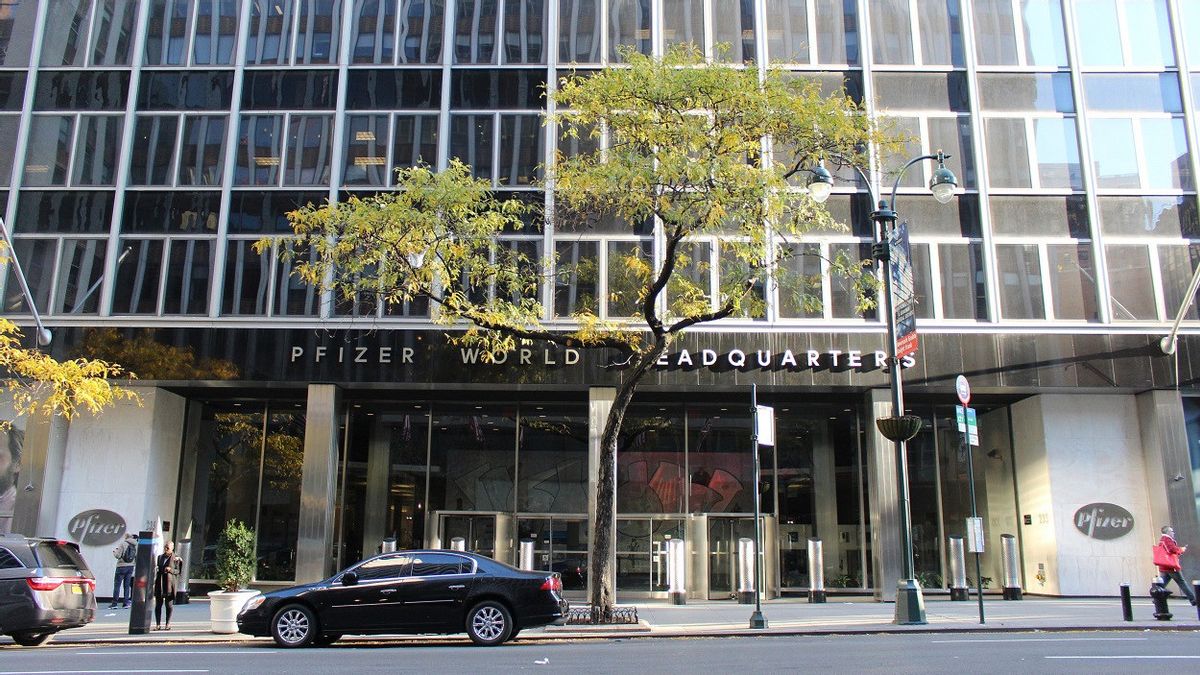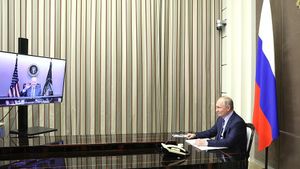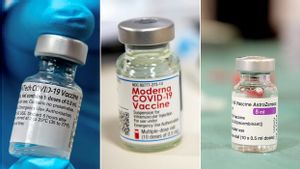JAKARTA - COVID-19 vaccine manufacturer Pfizer BioNTech said on Wednesday that three doses of their COVID-19 vaccine were able to neutralize the Omicron variant of the coronavirus in laboratory tests, an early signal that booster injections could be key to protection against infection from the newly identified variant.
German and US companies said two doses of their vaccine produced significantly lower neutralizing antibodies but could still protect against severe disease.
"The first line of defense, with two vaccination doses, may be compromised and three vaccination doses needed to restore protection," BioNTech Chief Medical Officer Ozlem Tuereci told a news conference.
The company also said it could deliver an improved vaccine targeted specifically at the Omicron variant by March 2022 if needed.
BioNTech and Pfizer are the first COVID vaccine manufacturers to issue an official update on the efficacy of their injections against Omicron.
In blood samples taken about a month after the third injection, the neutralized Omicron variant was as effective as two doses of neutralizing the original virus identified in China.
The Omicron variant, first detected in southern Africa and Hong Kong last month, has sparked global alarm about another spike in infections. Cases have been reported from Japan to the United States and across Europe.
"New data from Pfizer on the effectiveness of the vaccine against Omicron is very encouraging," US President Joe Biden tweeted on Wednesday. "Anyone who is eligible and hasn't got a booster should get a booster today."

Meanwhile, BioNTech CEO Ugur Sahin suggested that countries could consider shortening the time period between the second and third doses of the vaccine to combat the new variant.
He cited recent steps by a number of countries, including the UK to advance the third dose to three months after the second shot, from six months earlier.
"We believe this is the right way to go, especially if Omicron is now spreading further afield, to allow for a better level of protection in winter," said Sahin.
Apart, Dr. Walter Orenstein, a professor at Vanderbilt and former director of the US CDC's immunization program, said he found the data encouraging, as it showed current vaccines could still be used against Omicron.
"We may not need to change the vaccine. We may be able to stick with the current vaccine, at least to suppress severe disease."
The World Health Organization (WHO) classified the Omicron variant on November 26 as a 'variant of concern' but said there was no evidence to support the need for a new vaccine specifically designed to address the variant and its mutations.
Nevertheless, the company said it would continue efforts to bring an Omicron-specific COVID-19 vaccine to market. Work begins on November 25.
They said the planned production of 4 billion doses of Comirnaty's vaccine by 2022 is not expected to change, if an adapted vaccine is needed. BioNTech says even if an adapted vaccine becomes available in March, it won't be widely available for some time, noting perhaps 25 to 75 million doses of the new vaccine will be ready initially.
Pfizer scientist Kena Swanson said the company was considering also testing two doses of the Omicron-specific vaccine in people who were not currently vaccinated.
Pfizer and BioNTech's findings broadly align with a preliminary study published by researchers at the African Institute of Health Research in South Africa on Tuesday, which said Omicron could partially evade protection from two doses of Pfizer/BioNTech vaccine and suggested a third shot might help fend off infection.
Research on this new variant is still in its early stages. Laboratory analysis at the University Hospital Frankfurt in Germany found the ability to mount an antibody response to Omicron in people who received three doses of the injection, up to 37 times lower than the response to Delta.
Even so, two shots of the vaccine can still protect against severe disease, say Pfizer and BioNTech.
SEE ALSO:
Most of the surface structures on the T-cell-targeted Omicron spike protein, which normally appears after vaccination, were not affected by the Omicron mutation, they explained.
T cells are the second pillar of the immune response, next to antibodies, and are believed to prevent severe disease by attacking infected human cells.
For analysis, the two companies used a virus that was biologically engineered to have the characteristic Omicron mutation, known as a pseudovirus, and blood was collected from the subjects three weeks after the second vaccine dose or one month after the third dose.
To note, there is no significant data yet on how vaccines from Moderna, Johnson & Johnson, and other vaccine makers hold up against the Omicron variant, but they are expected to release their own data in a few weeks.
The English, Chinese, Japanese, Arabic, and French versions are automatically generated by the AI. So there may still be inaccuracies in translating, please always see Indonesian as our main language. (system supported by DigitalSiber.id)


















